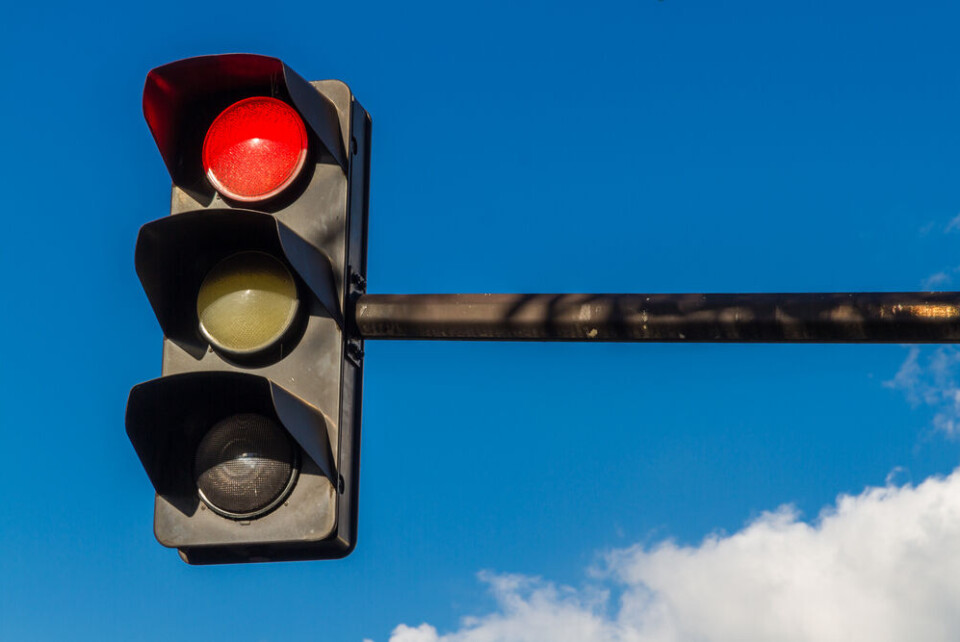-
Travellers risk extra costs under new Eurotunnel ticket rule
Some fare options are less flexible and less forgiving of lateness
-
May will be difficult month for train travel in France, warns minister
Two major train unions are threatening to strike and are ‘not willing to negotiate’, he says
-
Larousse dictionary adds 150 new French words - which ones do you know?
The new words come from trends in sport, nature, leisure, food, medicine, and the rest of the French-speaking world
Toulouse tests using AI to reduce driver wait at traffic lights
The system connects to cars automatically to help its AI algorithm interpret the road conditions

The city of Toulouse in southern France is set to test a traffic light system that uses artificial intelligence, in a bid to reduce waiting times at red lights and cut pollution from idling cars.
Currently, the Occitanie city has 460 central traffic lights, which are controlled automatically using magnetic loops under the road.
But from next year, Toulouse will become one of the first major urban centres to test a new artificial intelligence (AI)-based traffic light solution from the company Wisp Solutions.
Four red traffic lights on the route de Narbonne will be operated using the new system, which collects data from connected vehicles. This data is then interpreted by an AI algorithm, which will regulate the duration of red lights almost instantaneously.
Less waiting and lower pollution
Unnecessary waiting times at red lights could be cut by up to 40% with the new system, Wisp claims. This leads to improved traffic flow and a reduction in air pollution caused by road traffic, it adds.
Deputy mayor of Toulouse, Maxime Boyer, said that Wisp - which began life as a student project before becoming a major tech firm start-up - approached the city with the idea.
Mr Boyer said: “This will be the first experiment of its kind in Toulouse.”
Connected vehicles
Almost all newer vehicles will be automatically connected to the AI system if they pass on the relevant road.
“Since 2018, European legislation has required manufacturers to sell connected vehicles with a SIM card,” explained Pierre Philbert, co-founder of Wisp, to La Dépêche. “This gives them a wealth of information in real time, from vehicle speed to tyre pressure.
“Generally, vehicle owners give their consent to the manufacturer [for this SIM card to be used]. We retrieve this data from our servers,” he said.
Mr Philbert said that there are now enough connected cars on the road to provide sufficient information for the system to work well. And even a single connected car can provide insights into the behaviour of other non-connected vehicles nearby, he said.
The red lights will be at four intersections; Impasse Marfaing, Chemin de la Bourdette, Chemin des Sauges, and Allée du Lieutenant Lucien-Lafay.
The statutory waiting time at a red light is 120 seconds maximum, and 60 seconds minimum, said Pierre-Emmanuel Ribot, head of the PC Capitoul service in Toulouse Métropole, which currently controls and manages all of the city’s traffic lights.
“But it does depend on the size of the junction and the traffic,” he said. “[It is worse on] the busiest days of Tuesdays and Thursdays, as in all major cities. And in Toulouse, the périphérique Sud (southern ring road) is at a standstill from 15:00 on Fridays.”
Toulouse is not the first location in which the new AI system has been tested (although it is the largest urban centre to do so). It was trialled in some Paris suburbs in 2021-22, and is also currently being rolled out at 10 sites in the Ile-de-France and Grand Est regions.
Related articles
France gives go-ahead for traffic lights that let good drivers pass
The French speed cameras that reward rather than punish
























